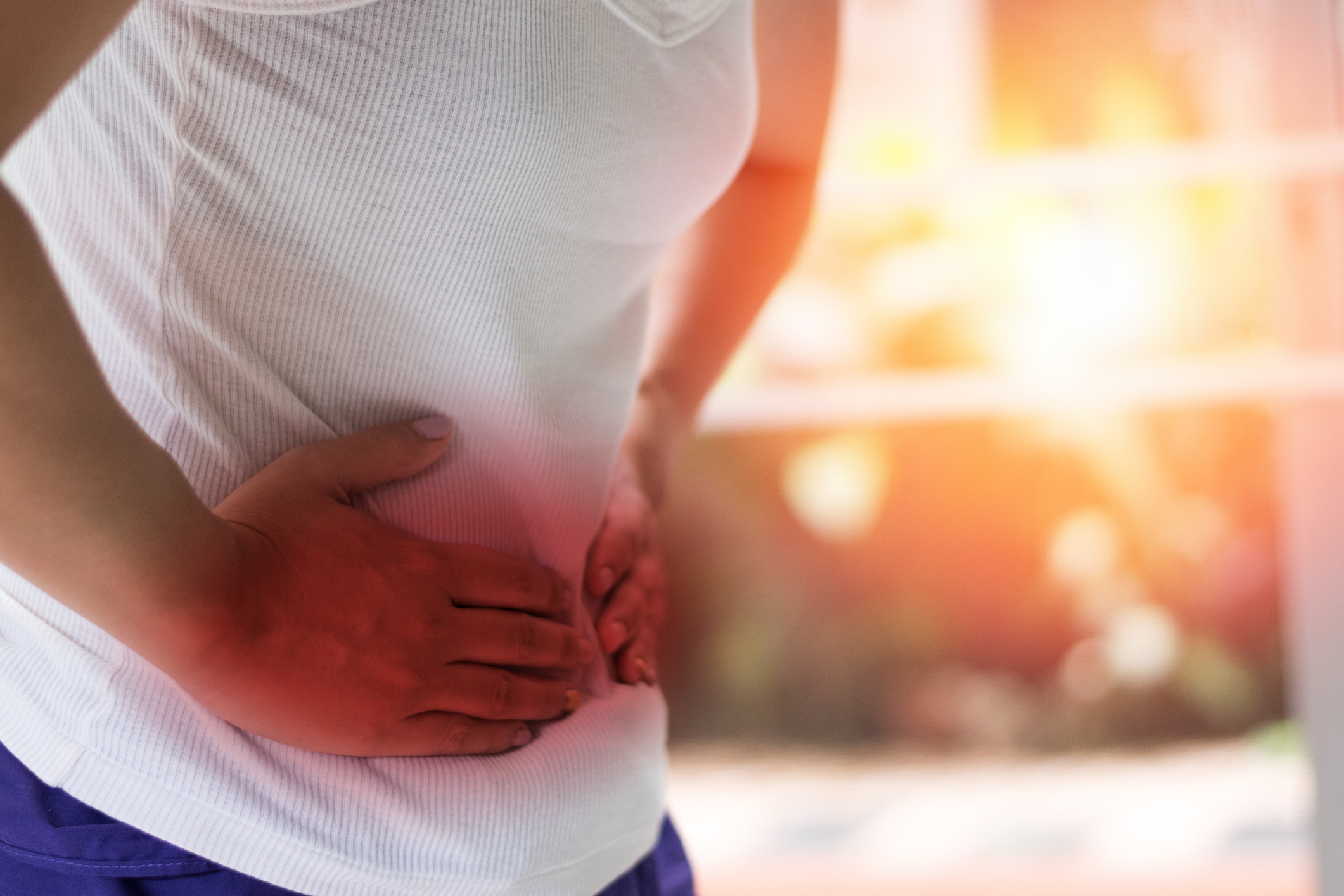Get Easy Health Digest™ in your inbox and don’t miss a thing when you subscribe today. Plus, get the free bonus report, Mother Nature’s Tips, Tricks and Remedies for Cholesterol, Blood Pressure & Blood Sugar as my way of saying welcome to the community!
What causes Leaky Gut?

Leaky gut is a hotly debated topic within the medical community between conventional and integrative doctors. While they differ on what it is, both sides agree…
Conditions and symptoms like irritable bowel syndrome, stomach pain, bloating, food intolerances and GERD, among others, are on the rise.
Why is this?
Much of this has to do with our rapidly changing environment.
Everything from how we eat, sleep, deal with stress, the air we breathe in, the water we drink, and more is dramatically different from how even my grandparents lived.
But more specifically, the way we live today is impacting our gut health like never before.
Those conditions may seem like mere nuisances, but the effects of leaky gut can negatively impact your health and worsen over the years to cause chronic illness, especially if you aren’t able to slow, stop or reverse the damage that starts in your gut and spreads throughout your entire body.
In this article, we’ll cover five factors that cause leaky gut, along with some actionable advice to help you feel better.
5 Contributing factors to Leaky Gut
These 5 factors have been shown to contribute to leaky gut…
Dysbiosis: Within our digestive tract lives over 400 different species of 100 trillion bacteria – also known as the microbiome – which all have unique abilities. Our bacteria are broken up between both good and bad bacteria. And while it sounds odd to have “bad bacteria,” it’s generally not a problem since the good bacteria keep them in line.
Depending on various factors, the bad bacteria can start multiplying, outnumbering the good bacteria and causing inflammation to occur. As inflammation sets in, the permeability of the tight junctions in your digestive tract weakens, increasing intestinal permeability (leaky gut) that allows for toxins, undigested food and even viruses, to enter your bloodstream.
One way modern medicine deals with this is by using antibiotics. No double about it, antibiotics work! They’ve been shown to reduce gut bacteria down to one-tenth, or simply put, it kills 90 percent of bacteria in your gut. But there’s a catch. Antibiotics destroy both good and bad bacteria and can take six months for your good bacteria to regrow. Sadly, some strains don’t always come back on their own.
Poor diet: Poor eating habits are associated with conditions like diabetes, cardiovascular disease, cancer, and other chronic conditions. Now, new research suggests a poor diet — the standard American diet — can make a leaky gut worse. The following foods, staples of the standard American diet, are foods you want to watch out for:
- Processed grains: In the medical journal Nutrients, researchers found most grains, even whole grains, promoted inflammation and auto-immune diseases by increasing intestinal permeability.
- Refined Sugars: Also in the journal Nutrients, added sugar staggered the balance of the gut bacteria, increasing inflammation and promoting endotoxin levels in the blood which increased intestinal permeability.
- Genetically modified organisms (GMOs): While GMO manufacturers say their crops are safe for humans, one study from The Journal of Toxicology shows how GMOs are killing cells while also poking holes through the gut lining.
Acidity: Eating a diet high in acidic foods — which is most of the standard American diet — can weaken your digestion and increase intestinal permeability by disrupting your natural pH balance.
Although foods play a big role in pH balance, other things also impact levels of acidity or alkalinity. Habits like drinking unfiltered water (heavy metals and toxins are acidic), medications regardless of if prescribed or over the counter, and breathing through your mouth can put your body in a state of acid overload.
Prolonged Stress: The longer you have to endure a stressful situation, the more it impacts not just your mind, but also your digestion. In the Journal Scientific Reports, researchers found that chronic or long periods of stress contributed to dysbiosis. It was comparable to the standard American diet with regards to how damaging it was to your gut lining.
General toxic overload: Other things can cause leaky gut that most people don’t think twice about:
- Alcohol – Regardless of its form, alcohol is full of metabolites that damage the large intestine and the liver by causing inflammation.
- Smoking – Smoking changes the gut bacteria negatively, increasing gut permeability, making the user more prone to diseases like Crohn’s disease, chronic obstructive pulmonary disorder and ulcerative colitis.
- Personal care products – Everyday products, from lotions to deodorants and makeup, are full of ingredients, like formaldehyde, that disrupt your microbiome, leading to dysbiosis.
Simple steps to address for better gut health
While it may feel overwhelming, there are simple steps you can take to help heal your digestion.
Here’s a shortlist of things you can do…
- Beware of antibiotics: Talk with your doctor about your concerns regarding dysbiosis within your gut and see if they have other solutions if you’re in a situation where antibiotics may be necessary. Another solution is to take probiotics after taking antibiotics. This can help replenish good bacteria quicker.
- Eat foods that support your microbiome: Fermented and fiber-rich foods have been shown to support a healthy gut.
- Find ways to relax: Regardless of why you’re stressed, you should always find ways to manage whatever is going on in your life. This can include meditating, hanging out with friends, or just doing something fun with the family. By taking small breaks, it can be a real-life saver when it comes to keeping long-term stress in check.
- Eat more alkaline and less acidic: What you eat every day can have the biggest impact on your gut health. By switching to foods that are less acidic like brown rice, buckwheat, fruits, vegetables, fish — high in omega-3s, and other alkaline foods, you’ll be giving your digestion a much-needed break.
Editor’s note: Did you know that when you take your body from acid to alkaline you can boost your energy, lose weight, soothe digestion, avoid illness and achieve wellness? Click here to discover The Alkaline Secret to Ultimate Vitality and revive your life today!
Sources:
How Long Does It Take for Gut Flora to Restore After Antibiotics? – Healthpath.com
Short-Term Effect of Antibiotics on Human Gut Microbiota – Pubmed.gov
Antibiotics And Probiotics: How Medications Affect Your Gut – Henryford.com
Dysbiosis Diagnosis – news-medical.net
The Dietary Intake of Wheat and other Cereal Grains and Their Role in Inflammation – Pubmed.gov
High Intake of Sugar and the Balance between Pro- and Anti-Inflammatory Gut Bacteria – Pubmed.gov
Cytotoxicity on human cells of Cry1Ab and Cry1Ac Bt insecticidal toxins alone or with a glyphosate-based herbicide – Pubmed.gov
The Microbiome, Gut Health and Nasal Breathing – Myfaceology.com
The pH of water: What to know – Medicalnewstoday.com
Short-chain fatty acids: microbial metabolites that alleviate stress-induced brain–gut axis alterations – physoc.onlinelibrary.wiley.com
How fiber and gut bacteria reverse stress damage – Medicalnewstoday.com
Alcohol Abuse and Leaky Gut Syndrome – Recoveryranch.com
Alcohol and Gut-Derived Inflammation – Pubmed.gov














